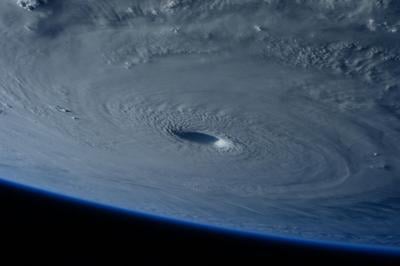Tropical Storm Erin, the fifth named storm of the 2025 Atlantic hurricane season, officially formed in the eastern Atlantic on Monday, according to the US National Hurricane Center. The storm emerged just west of the Cabo Verde islands, marking a significant start to what is expected to be a busy Atlantic hurricane season, reports CBS News.
Currently situated about 280 miles west-northwest of the Cabo Verde Islands, Tropical Storm Erin boasts maximum sustained winds of 45 mph, moving westward at a brisk 20 mph, says Live 5 News. Forecasters predict Erin to strengthen over the coming days, potentially becoming the first hurricane of the 2025 season by the end of the week as it heads towards the Caribbean.
Though its immediate threat to the US remains minimal, the Caribbean islands could face significant weather disruptions if Erin develops into a major hurricane. According to CBS, the Atlantic hurricane season, which runs from June to November, peaks in August, September, and October. Erin's formation occurs as students in South Florida prepare to return to school this week, highlighting the need for increased vigilance in these vulnerable coastal areas.
Read More on Chicago Star
- Northwestern Memorial Hospital & Rush University Medical Center ranked top hospitals
- Chicago parks come alive as Midnight Circus blends spectacle with giving back
- Chicago River Swim gets green light for historic comeback
- August Doorperson of the Month: La’Velle Barnett, 850 N. Lake Shore Dr.
Atlantic hurricane season overview
The Atlantic has already seen five named storms, CBS says, with Tropical Storm Dexter forming last week but not impacting land. This season is expected to be above-normal, with forecasts predicting 13 to 18 named storms, five to nine of which could become hurricanes, according to the National Weather Service.
The developing situation with Tropical Storm Erin warrants close monitoring, especially for communities in its projected path. Historically, the Atlantic hurricane season's most intense activity occurs during these months, underlining the importance of preparedness and continuous updates from meteorological agencies.








(0) comments
Welcome to the discussion.
Log In
Keep it Clean. Please avoid obscene, vulgar, lewd, racist or sexually-oriented language.
PLEASE TURN OFF YOUR CAPS LOCK.
Don't Threaten. Threats of harming another person will not be tolerated.
Be Truthful. Don't knowingly lie about anyone or anything.
Be Nice. No racism, sexism or any sort of -ism that is degrading to another person.
Be Proactive. Use the 'Report' link on each comment to let us know of abusive posts.
Share with Us. We'd love to hear eyewitness accounts, the history behind an article.